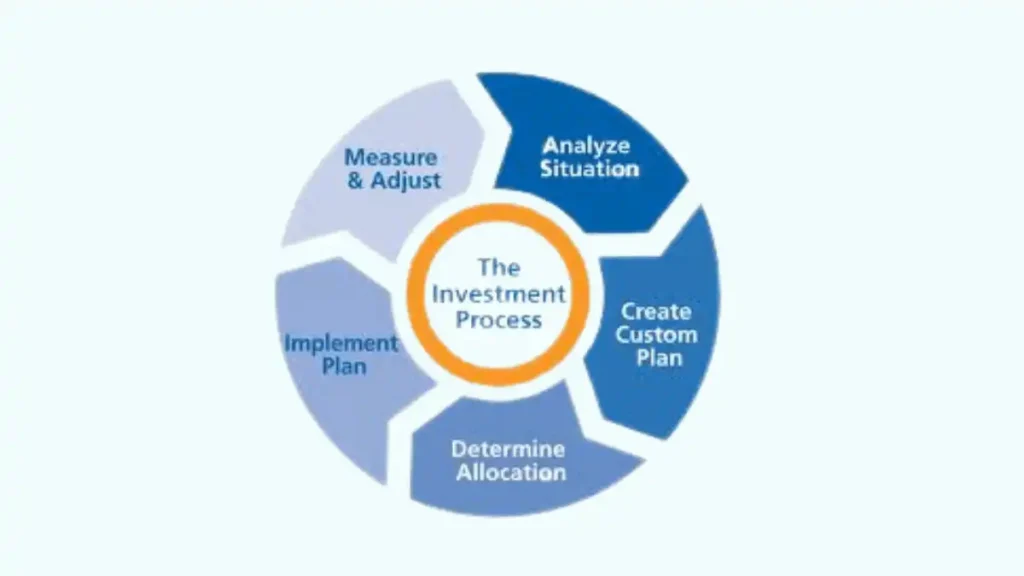A startup may face a difficult difficulty in obtaining capital. As an entrepreneur, you may have a great concept that you are passionate about, but without the funding needed to start and expand your firm, it may never materialize. The good news is that there are tools and tactics at your disposal to assist you get the money you require to advance your firm.
In this article, we’ll examine the startup funding landscape and offer advice on how to successfully snag investments for expansion. Whether you’re just getting started or hoping to grow your company, we’ll go through everything from gaining investor confidence to developing a strong financial strategy, learning the art of pitching, and overcoming obstacles.
Contents
- 1 Key Factors for Raising Startup Funding
- 2 The Dos and Don’ts of Fundraising: Navigating Roadblocks
- 3 Alternative Funding Sources: Exploring Your Options
- 4 Negotiating the Deal: Finding the Right Fit
- 5 Scaling Your Startup: Putting Your Investment to Work
- 6 Staying the Course: Surviving the Ups and Downs of Entrepreneurship
- 7 Conclusion: Taking the Leap and Pursuing Your Dreams
Key Factors for Raising Startup Funding
In the dynamic and competitive landscape of entrepreneurship, securing funding is often a critical step towards fueling the growth and success of startups. “Startup Funding 101: How to Secure Investments for Growth” is a comprehensive guide that equips aspiring and established entrepreneurs with the essential knowledge and strategies needed to navigate the complex world of fundraising.
From crafting a compelling pitch to identifying suitable funding sources and negotiating terms, this guide offers valuable insights and practical advice to help startups secure the necessary investments for sustainable growth. Whether you’re a budding entrepreneur or a seasoned startup founder, this resource will empower you to confidently pursue funding opportunities and propel your venture towards success.
Finding Your “Why”: Building Confidence in Your Startup
Finding your “why” can make all the difference when starting a business, which can be intimidating. What motivates you to proceed with this project? What issue are you addressing? How do you hope to be perceived? By providing answers to these queries, you’ll not only gain direction but also confidence in your startup.
Success depends on having faith in both yourself and your startup. You’ll be one step closer to obtaining the funds required for expansion by understanding why you’re doing what you’re doing and being able to articulate that message clearly.
It is simpler to explain your vision to prospective investors and clients when you are clear on your purpose and ambitions. Others will be motivated to join your path by your enthusiasm and commitment to what you are doing. Consider your motives and values carefully, then apply them to every element of your organization.
Also Read: Unveiling Excellence: India’s Top Startup Trailblazers This Decade
The Art of the Pitch: Mastering Your Presentation Skills
Few abilities are as crucial to raising money for your firm as the capacity to make an effective pitch. Your pitch needs to be persuasive whether you’re delivering it in front of a group of investors or sending it via email.

Making an emotional connection with your audience is one of the most crucial things to have in mind when writing your pitch. Investors want to know why your product or service is important and what problem it answers, not just information about it. Make sure you can succinctly describe the distinctive value proposition of your company in a way that appeals to potential investors.
Knowing your market and competitors well is another essential component of a winning pitch. Investors want to know that you’ve done your research and have found a genuine market demand that isn’t being addressed by any alternatives. Prepare to talk about how you expect to set yourself apart from the competition and how you intend to gain market share.
Know Your Numbers: Creating a Financial Plan
Making a sound financial strategy is one of the most important steps in obtaining startup finance. Investors want to know that you are aware of the financial situation of your company and your plans for using any grants you may receive.

Start by developing accurate financial estimates based on market analysis and current trends. For at least the next three years, your estimates should contain income, expenses, and cash flow. Investors will carefully review your estimates, so be sure they are accurate and well-supported.
Next, prepare a thorough budget that specifies how you intend to use the money raised from investors. Make careful to account for everything, including marketing costs, product development, and overhead costs such as salaries. Investors desire specific Details like where their money is going, so be clear and transparent as much as possible.
Additionally, it’s crucial to monitor your financial indicators, which reveal how well your company is running over time. These metrics include gross margin, burn rate, customer acquisition cost (CAC), lifetime value (LTV), etc.
A carefully designed financial plan demonstrates to investors that you have a firm grasp of your company’s financial situation and that their money will be used wisely.
Building Your Network: Connecting with Investors
For your startup to get investment, expanding your network is crucial. Making connections with investors gives you access to not only prospective funding sources but also invaluable knowledge and experience that can support the expansion of your company. Attending startup events and conferences where investors are likely to be present is a successful approach to expanding your network.
It’s critical to approach investors with a concise and persuasive proposal when making contact. This entails outlining the startup’s distinctive value proposition and showcasing how it can address a pressing issue. In order to secure investment, it is essential to build a rapport with investors. This helps to establish trust and trustworthiness.
It’s crucial to conduct advanced research and select the most pertinent investors for your company in order to make the most of your networking efforts. Additionally, you should be ready to respond to challenging inquiries regarding your company’s business plan, financial forecasts, and market potential.
Also read: Top 5 Profitable Metaverse Business Ideas
In the end, cultivating bonds with investors takes time and work but may be beneficial in many ways beyond finance. You’re likely to receive insightful information, mentorship possibilities, business alliances, and perhaps even customers or clients by cultivating these relationships over time.
Understanding the Investment Process: From Seed to Series A

Securing funding for your business includes a number of steps, each of which has certain characteristics and difficulties. To successfully traverse the investment environment, it’s critical to comprehend what each level entails, from seed capital to series A.
The majority of firms start raising money at the seed stage. In this stage, smaller sums of money are often raised from investors who are ready to take a chance on an unproven concept or idea, such as angel investors or venture capitalists. Investors are frequently more interested in the people behind the firm at this point than the actual product, so it’s critical to have a solid team in place with a clear goal in mind.
The next step is series A, which typically happens once your firm has established its idea and shown some amount of commercial success. At this phase, you’ll be trying to raise larger sums of money from institutional investors like private equity funds or venture capital
companies. You must have a proven track record of expansion and generating revenue, as well as a detailed plan for how you intend to use the raised funds, in order to attract investment at this stage.
In general, for any startup entrepreneur trying to acquire money and grow their company, understanding the investment process from seed fundraising all the way through series A is essential. At each stage of your company’s growth path, you can boost your chances of successfully securing investments that will assist drive your growth and advance your business by being strategic about when and how you contact potential investors.
Obtaining funding for your startup is an exciting but difficult task. It necessitates a great deal of effort, focus, and fortitude. You must understand the dos and don’ts of fundraising and how to get around potential obstacles if you want to be successful. Here are a few pieces of advice:
Prior to requesting funding, concentrate on developing contacts with possible investors. Take the time to get to know them personally and establish a connection since investors like to work with someone they like and trust. Additionally, be sure you are well aware of what they are seeking in an investment opportunity.
Never approach investors without first performing your research. Make sure you’re focusing on the correct people who are interested in your industry or niche market by researching their backgrounds, investment philosophy, and portfolio firms.
Do be sure to have a persuasive elevator pitch that explains your value proposition, market opportunity, competitive edge, and growth potential. To back up your assertions and show that you have a sound business plan in place, use data-driven KPIs.
Be careful not to oversell or make extravagant projections or promises. Be open and truthful about the dangers of investing in a startup, and address any worries directly rather than burying them.
Even if the input from investors isn’t what you want to hear, remain open-minded about it. Utilise the chance to improve your pitch or company model based on observations from seasoned experts who have been there before.
If you have rejection or setbacks along the path, don’t give up too quickly.
Alternative Funding Sources: Exploring Your Options
While venture capitalists and angel investors may be the most popular traditional funding sources, entrepreneurs can also look into alternative funding sources to raise money for their startups.

One of these options is crowdsourcing. Startups can gather money from lots of people who support their idea through websites like Kickstarter and Indiegogo in exchange for rewards. Another choice is peer-to-peer lending, which involves people funding companies through Internet marketplaces like Lending Club or Prosper.
Incubators and accelerators that offer finance together with mentorship and resources, grants from governmental organizations and foundations, and revenue-based financing, which enables businesses to repay investors based on a percentage of their income, are some other choices.
Investigating these alternative funding possibilities gives business owners more options and diversifies their investment holdings. Startups can increase their chances of obtaining the capital required to sustain growth while also strengthening their network of supporters by looking for several sorts of investors.
Negotiating the Deal: Finding the Right Fit
Once your proposal and financial strategy have won over investors, it’s time to begin the deal’s negotiations. This is where things might become complicated since you’ll have to strike a balance between obtaining the money you require and keeping ownership of your firm.

Start by conducting research and determining the kind of investor who would be most beneficial to your business. Are they prepared to adopt a long-term approach or are they hoping for a quick return on their investment? Do they have prior experience in your sector, or do they just want to diversify their holdings? You may adjust your presentation and negotiation tactics to suit their requirements and interests by being aware of these elements.
Be willing to make concessions when negotiating terms, but also be aware of your own limitations. Don’t give away too much ownership or control of your business to raise money. Keep in mind that since this is a partnership, both sides should gain from the arrangement.
The success of your firm ultimately depends on finding the proper fit with an investor who shares your vision and beliefs. So, take the time to conduct your research and select a partner who not only shares your vision but also has the resources and know-how to advance your business.
Scaling Your Startup: Putting Your Investment to Work
Securing funding for your firm is simply the beginning of a successful journey. The true problem is effectively scaling your business after making that investment. Planning, carrying out, and adaptability must be carefully balanced in order to scale your startup.
Keeping a careful check on your finances is important for scaling your firm. With a sound financial plan in place, you can keep track of spending, control cash flow, and decide where to devote resources as your business expands. Aim to balance the necessity for profitability with the potential benefits of spending in areas like marketing and product development.
Beyond money, it’s crucial to assemble a staff that can support expansion and change. Consider hiring new employees with specialized talents or outsourcing certain duties to outside suppliers as you expand operations. Maintain open lines of communication within your team to keep everyone working towards the same objectives.
In the end, scaling up involves thoughtful preparation and strategic thinking, but it’s also an exciting period with lots of new chances for innovation and growth.
Staying the Course: Surviving the Ups and Downs of Entrepreneurship
Although it can be exciting, starting a business is one of the most difficult tasks you will ever face. Though there will be times when you feel like giving up, there will also be times when everything seems to be going your way. It’s crucial for entrepreneurs to understand how to deal with these ups and downs while maintaining their motivation.
Building resilience is the first step. This entails developing the ability to overcome setbacks or disappointments. Don’t let failures deter you from pursuing your goals; rather, view them as chances for improvement and education. Remember that failure is a necessary step on the road to success.
Second, concentrate on creating a solid network of allies. Be in the company of individuals who support your goals and the things you do. Seek mentorship from seasoned businesspeople who have faced comparable difficulties since they may provide insightful counsel and direction along the road.
Continue to be dedicated to your goal and mission, and last but not least. Don’t let little failures or challenges make you forget the original motivation behind starting your company. Keep in mind that starting a business is a marathon, not a sprint, so pace yourself appropriately and maintain your attention on long-term success.
starting a business is not simple and there will always be ups and downs along the route, entrepreneurship demands enormous passion, patience, and endurance. However, any entrepreneur may overcome these challenges and even succeed with the right resilience, support networks, passion, and motivation.
Conclusion: Taking the Leap and Pursuing Your Dreams
Getting capital for your startup might be difficult, but it can also be very rewarding. You may improve your chances of getting the money you need to grow your firm by developing confidence in your venture, improving your presentation abilities, developing a sound financial strategy, and networking with investors.
Understanding the investment process is crucial, as is navigating any potential obstacles. You may negotiate the best price for you and use your investment to scale your startup if you are persistent and determined. Keep in mind that becoming an entrepreneur is a journey filled with ups and downs, but with perseverance and determination, you may make your ambitions come true.
Read the Funding Guide Provided by Government of India on Startup India’s official Website – Link.
